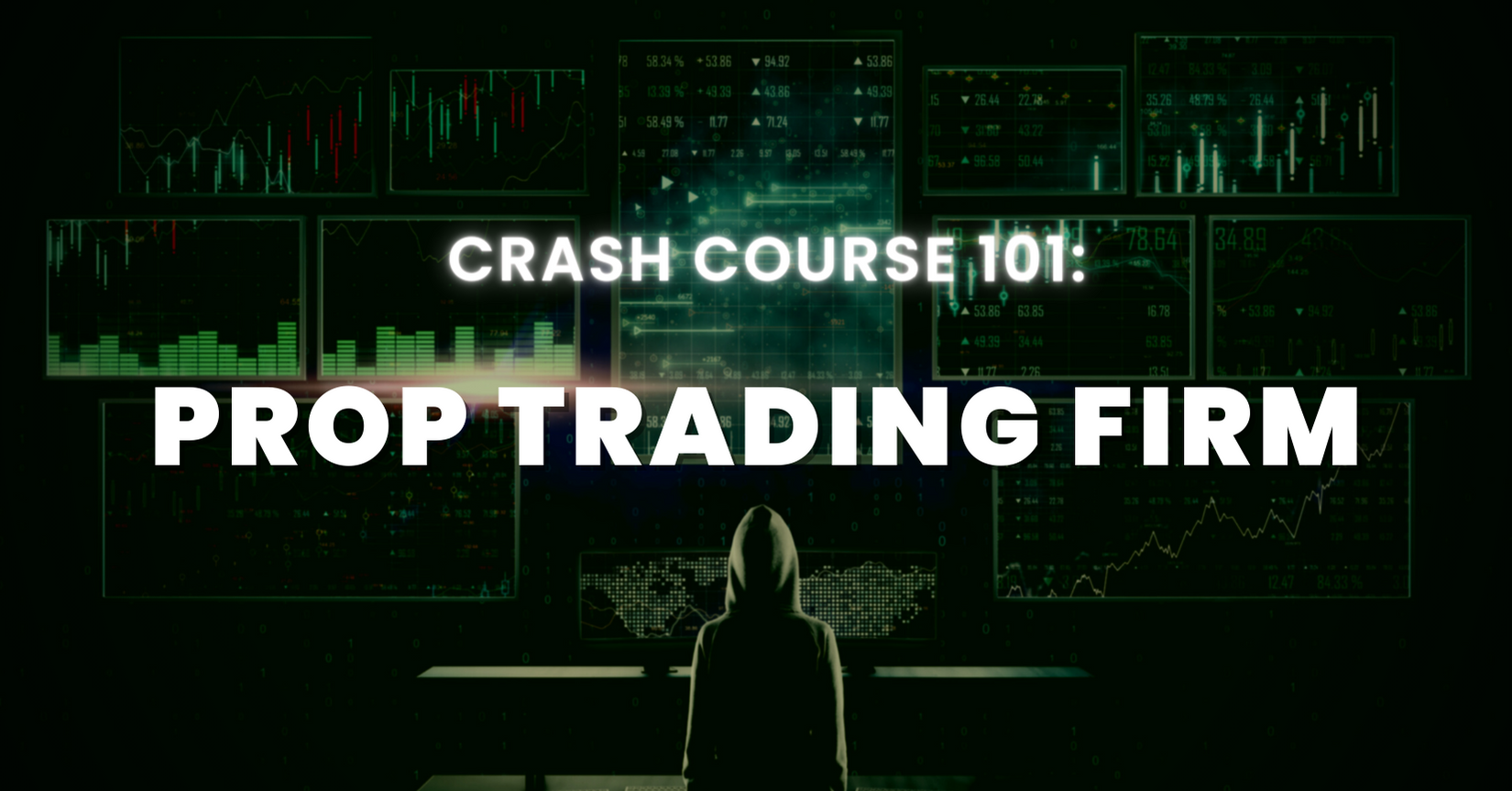Proprietary trading, or prop trading, is a type of trading where a firm or company invests its own capital in the financial markets to generate profits. Prop trading firms use advanced trading strategies, algorithms, and risk management techniques to gain an edge in the market and earn high returns. If you are interested in prop trading, it is important to understand what prop trading firms are, how they operate, and how you can benefit from them.
If you’re an experienced trader or a beginner looking to learn more about prop trading firms, you’ve come to the right place. In this blog, we’ll explore what prop trading firms are, how they operate, and how you can benefit from them.
What is Prop Trading?
Prop trading firms are financial companies that invest their own capital in the markets, with the aim of earning profits. They typically use advanced trading technologies, algorithms, and strategies to gain an edge in the market and generate high returns. Prop trading firms usually trade a variety of financial instruments, such as stocks, bonds, commodities, and currencies, and they may operate in multiple markets around the world.
How does a prop trading firm work?
Prop trading firms typically employ experienced traders who use the company’s capital to execute trades in the market. These traders are often given a high degree of autonomy to use their skills, knowledge, and trading strategies to generate profits for the firm. Prop trading firms also use advanced technologies and risk management techniques to monitor and control the risks associated with their trades.
Prop trading firms may operate as standalone companies or as subsidiaries of larger financial institutions. Some firms may also offer training programs or mentoring for traders, with the goal of developing their skills and helping them become successful traders.
What makes it different from Retail Brokers?
Proprietary trading firms and retail brokers are different in several ways. Retail brokers act as intermediaries between traders and the financial markets, providing access to various trading platforms, instruments, and products. In contrast, prop trading firms invest their own capital in the markets and employ traders to execute trades on their behalf.
Retail brokers typically generate revenue from spreads, commissions, and fees charged on trades executed by their clients. Prop trading firms, on the other hand, earn profits from successful trades executed by their traders. Retail brokers offer their services to retail traders, while prop trading firms typically look for experienced traders with a proven track record of success.
What kind of Traders Prop Firms Look for?
Prop trading firms look for traders with a strong track record of profitability, strong risk management skills, and a deep understanding of the financial markets. They may also look for traders with a proven ability to use advanced trading technologies and algorithms to gain an edge in the market.
Some prop trading firms may also require traders to pass a trading evaluation or demonstrate their trading skills through a simulation or live trading account. In addition, prop trading firms may look for traders with a particular trading style or expertise in specific markets or financial instruments.
How Can You Benefit from Prop Trading Firms?
If you’re an experienced trader or a beginner looking to learn more about trading, prop trading firms can offer many benefits. Some of the key advantages of trading with a prop firm include:
Access to capital: Prop trading firms provide traders with access to significant capital, which can be used to execute larger trades and potentially earn higher returns.
Advanced trading technologies: Prop trading firms often use advanced trading technologies and algorithms, which can help traders to gain an edge in the market and generate profits more consistently.
Risk management: Prop trading firms have a strong focus on risk management, which can help traders to manage their risk exposure and avoid significant losses.
Training and mentoring: Some prop trading firms offer training programs and mentoring for traders, which can help them to develop their skills and become successful traders.
Conclusion
In conclusion, prop trading firms offer experienced traders and beginners alike a unique opportunity to invest in the financial markets using the firm’s capital. With the use of advanced trading technologies, algorithms, and risk management techniques, prop trading firms aim to generate profits in various financial instruments, such as stocks, bonds, commodities, and currencies. Trading with a prop firm can offer traders access to significant capital, advanced trading technologies, risk management techniques, and training programs that can help them earn higher returns and develop their skills as traders.
However, it is important to note that trading with a prop firm also comes with some risks, such as the potential for large losses and the firm’s performance impacting traders’ earnings. Traders must also follow strict rules and guidelines set by the prop firm and may be subject to trading evaluations or profit-sharing agreements.
How do I start a prop trading firm?
Starting a prop trading firm requires a significant amount of capital, industry expertise, and regulatory compliance. It is typically not a feasible option for individual traders or small groups. Those who wish to start a prop trading firm should have a solid business plan, a deep understanding of the financial markets, and the ability to manage risk effectively. It is advisable to seek legal and financial advice before pursuing this endeavour.
Are prop firms a scam?
No, prop trading firms are not scams. They are legitimate financial companies that invest their own capital in the markets with the goal of generating profits. However, it is important to do thorough research and due diligence before trading with any firm, including prop trading firms. Traders should ensure that the firm is properly registered and licensed, has a good reputation, and offers fair and transparent trading conditions. Additionally, traders should be aware of the risks associated with prop trading and carefully consider their personal financial goals and risk tolerance before trading with a prop firm.
Are prop firms worth it?
Whether prop trading firms are worth it or not depends on the trader’s personal goals, experience, and risk tolerance. Prop firms offer many advantages, such as access to capital and advanced technologies, but also come with risks and strict guidelines. Traders should weigh the pros and cons before deciding if prop trading firms are worth it for them.

